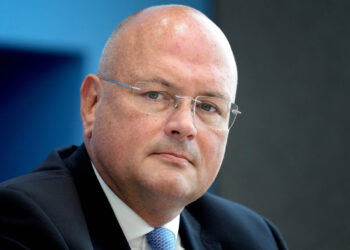Germany’s interior minister on Wednesday advocated medical tests to estimate the age of undocumented young asylum seekers, despite objections from health care professionals.
The debate has raged in Germany, which has taken in over one million asylum seekers since 2015, following several violent crimes involving refugees of uncertain age who claimed to be minors.
The mister in charge of domestic security, Thomas de Maiziere, has now thrown his support behind the controversial tests for young migrants without valid identity documents.
Mr. De Maiziere, a close ally of Chancellor Angela Merkel, said it was “not too much to ask if they have to actively participate in determining their age.”
He called for rules stating that “in all cases where no official and genuine document can be produced, the age must be determined by other means, if necessary through a medical examination.”
The hurdles for gaining asylum are lower for those aged under 18, and a growing number of conservative politicians are now demanding tougher rules and checks to counter fraud.
Physicians can estimate a person’s age using X-rays of the hand’s bone structure combined with factors such as height, weight and development of the teeth, breasts and genitalia.
An emotional debate has flared in Germany especially since an Afghan refugee allegedly stabbed to death a 15-year-old girl in the southwestern town of Kandel on December 27.
The victim’s father has charged that the refugee, the girl’s ex-boyfriend, is significantly older than his stated age of 15.
Another Afghan refugee, currently on trial for killing a 19-year-old student in 2016, had claimed to be 16 or 17 when he arrived the previous year.
He later admitted in court to having lied about his age, and prosecutors now estimate him to be at least 22.
The German Medical Association has objected to universal medical age checks for young refugees of uncertain age on ethical grounds, charging they are a violation of their personal dignity.
“X-raying without any medical indication is an interference with a person’s bodily integrity,” said its president Frank Ulrich Montgomery, who also cautioned that such tests carry a “high degree of uncertainty.”






















